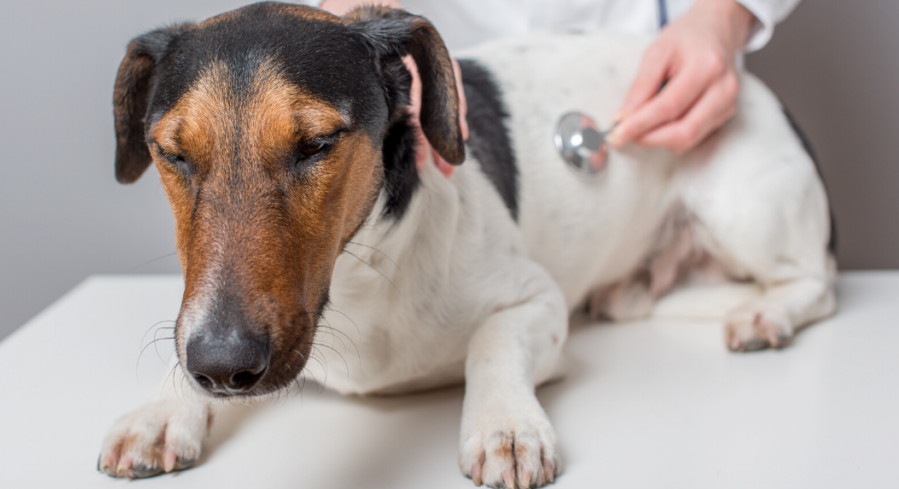Dogs that consume rat poison run a high risk of bleeding to death since the poison contains substances known to cause blood clotting. When treating dogs poisoned by rat poison, vitamin K plays a critical role as an antidote. But figuring out how much vitamin K is right is crucial to treating the dog patient effectively and making sure they are healthy.

The type and quantity of toxin consumed, the dog’s size, and the severity of the poisoning all affect how much vitamin K should be given to a dog suffering from rat poison toxicity. Since vitamin K1 (phytomenadione) is the most effective type of vitamin K for treating anticoagulant toxicity in dogs, veterinarians usually prescribe it. To counteract the effects of the anticoagulant poisons and quickly refill the depleted clotting factors, a loading dosage of vitamin K may be supplied initially. To guarantee that the dog’s system maintains therapeutic amounts of vitamin K throughout the healing process, a maintenance dose is administered after the loading dose.
The attending veterinarian evaluates each case individually and determines the specific dosing schedule. Veterinarians can assess the efficacy of vitamin K therapy and alter the amount as needed by routinely checking the dog’s clotting capability through blood testing. As part of a thorough treatment strategy for rat poison toxicity, pet owners must meticulously adhere to the veterinarian’s instructions and make sure the dog gets the recommended dosage of vitamin K. Dogs who have consumed rat poison have a better chance of recovering and regaining their normal ability to coagulate blood if they receive the necessary veterinarian treatment and follow the recommended dose schedule.
Understanding Rat Poison Toxicity
Often referred to as rodenticides, rat poisons include ingredients like warfarin, bromadiolone, or brodifacoum that disrupt the blood coagulation process. These substances cause hemorrhaging and internal bleeding in dogs by preventing the synthesis of vitamin K-dependent clotting factors.
The Role of Vitamin K
A fat-soluble vitamin, vitamin K is essential for blood coagulation. It helps the liver produce clotting factors II, VII, IX, and X, which are necessary for blood clots to form and halt bleeding. Vitamin K replaces the clotting components that have been depleted in cases of rat poisoning, so counteracting the effects of the anticoagulant toxins.
Determining the Dosage
The type and quantity of toxin consumed, the dog’s size, and the severity of the poisoning all affect how much vitamin K is prescribed to treat canine rat poison toxicity. The most useful type of vitamin K for treating anticoagulant poisoning is phytomenadione, or vitamin K1, which is usually prescribed by veterinarians.
Veterinary Guidance
Veterinarians are qualified to evaluate each case’s unique circumstances and choose the best course of action. To guarantee that the dog’s system has enough vitamin K during the healing process, they might give the dog a loading dose of the vitamin first, then a maintenance dose.
Monitoring and Adjustments
It is essential to regularly monitor the dog’s clotting ability through blood testing in order to evaluate how well vitamin K therapy is working. Depending on the dog’s reaction and coagulation profile, veterinarians can modify the dosage to guarantee that the poisoning is appropriately managed.
Preventive Measures
Prevention is still the best way to keep dogs safe from unintentional poisoning, even though fast vitamin K treatment is necessary in situations of rat poison consumption. Rat poisons should be kept safely out of the reach of pets, and owners should think about employing safer alternatives to rodent control that don’t endanger their canines.
Conclusion
In conclusion, by resupplying depleted clotting components and reestablishing normal blood clotting activity, vitamin K acts as a vital counteragent in the treatment of rat poison toxicity in dogs. However, veterinary knowledge and careful evaluation of numerous aspects are necessary to determine the proper vitamin K dosage. If pet owners believe their dog may have consumed rat poison, they should emphasize prevention and get in touch with a veterinarian right away. Dogs poisoned with rat poison can recover and live healthy lives if they receive prompt medical attention and appropriate treatment.
One of the most important aspects of veterinary care is figuring out how much vitamin K is needed to treat rat poison overdose in dogs. Depending on the kind and quantity of toxin consumed, the size of the dog, and the intensity of the poisoning, the dose schedule is customized for each unique situation. Experts in veterinary medicine are essential in diagnosing the condition, recommending the appropriate amount of vitamin K1, and continuously monitoring the dog’s healing process. In order to guarantee that their dog receives the recommended dosage as part of the full treatment plan, pet owners closely adhere to the veterinarian’s recommendations. Dogs suffering from rat poison toxicity have a higher chance of recovering and getting well by following the prescribed dosing schedule and getting veterinarian care as soon as possible.